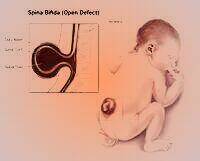MedicalResearch.com Interview with:
Jerilynn C Prior MD FRCPC (on behalf of all authors
Professor of Endocrinology / Department of Medicine
University of British Columbia
Centre for Menstrual Cycle and Ovulation Research
www.cemcor.ca
BC Women’s Health Research Institute
Vancouver BC Canada
MedicalResearch.com: What is the background for this study?
Response: Night sweats and hot flushes/flashes (together called vasomotor symptoms, VMS) disturb women who are still menstruating (in perimenopause) are at least as much or more than menopausal women (without flow for a year or more)
1. However, although studies have investigated various treatments for perimenopausal hot flushes/flashes, none have proven effective in these women who are also likely to be having heavy flow, breast tenderness, and premenstrual symptoms related to high and variable estrogen levels. These include randomized controlled trials (RCT) of the birth control pill
2, and gel estrogen in women using a progestin-releasing IUD
3.
Neither showed that therapy was more effective than placebo; both studied too few participants to provide a clear answer.
Meanwhile, major medical organization guidelines recommend menopausal hormone therapy (MHT, usually of estrogen with a progestin) for any women younger than 60 years old who are bothered by night sweats and hot flushes
4-6. However, there are no scientific RCT studies showing MHT is effective for
perimenopausal night sweats and hot flushes. Giving more estrogen to someone whose own estrogen levels are often high, also did not make clinical sense.
We previously performed an RCT showing that oral micronized progesterone (progesterone) was effective for menopausal hot flushes and also improved sleep
7. Given that progesterone levels in perimenopausal women are declining, we considered that perimenopausal progesterone therapy for night sweats needed testing.
(more…)



 Understanding oneself is vital before exploring medical fields. What are your unique interests? Which medical areas spark your enthusiasm? It's common to advise students to reflect on their likes and dislikes in various subjects. To save some time, you might hire an
Understanding oneself is vital before exploring medical fields. What are your unique interests? Which medical areas spark your enthusiasm? It's common to advise students to reflect on their likes and dislikes in various subjects. To save some time, you might hire an 




















 MedicalResearch.com: What is the background for this study?
Response: I became interested in dog's sense of smell several years ago while doing therapy dog demonstrations at the California Science Center in Los Angeles during a special traveling exhibit "Dogs! A Science Tail." (Now at the Orlando Science Center). I did a lot of research on this topic and taught children about it through the Los Angeles Public Library using my Great Pyrenees therapy dogs. Then, COVID broke out and I expanded my research into any work being done to possibly utilize scent dogs for screening and testing for COVID. I found only a few such studies. However, I fortuitously met Heather Junqueira of BioScent, Inc. (in Florida) online and she was beginning to successfully teach her beagles to detect COVID-related odors. She agreed to co-author a peer-reviewed review paper with me. That led to our first paper -
Dickey, T, Junqueira, H. Toward the use of medical scent dogs for COVID-19 screening. J Osteopath Med 2021;1(2): 141-148.
MedicalResearch.com: What is the background for this study?
Response: I became interested in dog's sense of smell several years ago while doing therapy dog demonstrations at the California Science Center in Los Angeles during a special traveling exhibit "Dogs! A Science Tail." (Now at the Orlando Science Center). I did a lot of research on this topic and taught children about it through the Los Angeles Public Library using my Great Pyrenees therapy dogs. Then, COVID broke out and I expanded my research into any work being done to possibly utilize scent dogs for screening and testing for COVID. I found only a few such studies. However, I fortuitously met Heather Junqueira of BioScent, Inc. (in Florida) online and she was beginning to successfully teach her beagles to detect COVID-related odors. She agreed to co-author a peer-reviewed review paper with me. That led to our first paper -
Dickey, T, Junqueira, H. Toward the use of medical scent dogs for COVID-19 screening. J Osteopath Med 2021;1(2): 141-148. 






